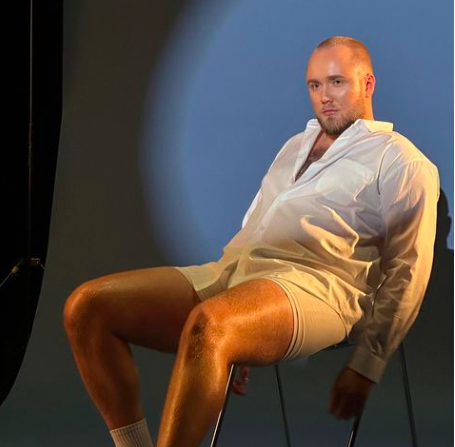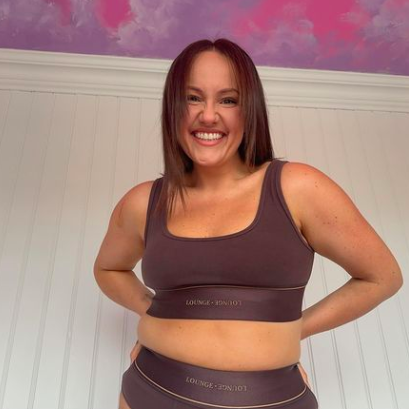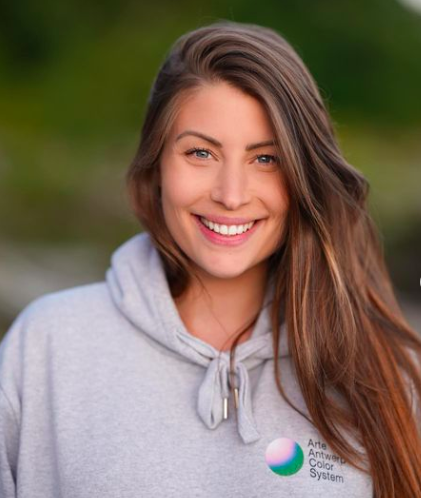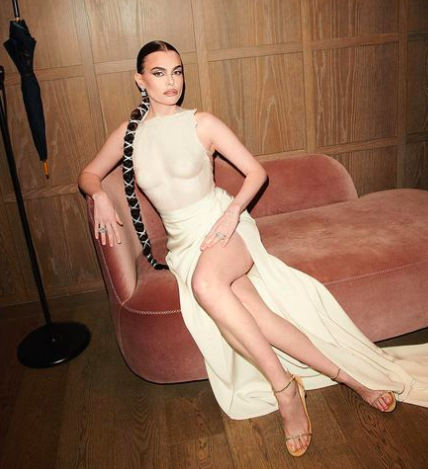Social Influencers: A Guide to Authentic Brand Partnerships
In recent years, our society has given increased attention to the changing dynamics of the cultural and social and factors that shape individual and community life. From changing attitudes about gender, diversity, and the environment, alongside the influence of Gen Z, social media became highly populated by changemakers who are challenging society’s narrative on a whole range of social causes whilst having trusted and dedicated audiences; social influencers. Meanwhile, brands have shown enthusiasm towards social influencers, due to their authenticity and dedication to social causes. So how can brands best collaborate with social influencers in an uplifting manner, while maintaining authentic grounds?
Working with social influencers and exploring diverse brand partnerships can be both authentic and uplifting. To have an authentic perspective on this matter, VOCAST engaged in a conversation with Bella Neergaard, a passionate advocate for self-love and neurodiversity. Through her personal experiences, Bella shared her journey of collaborating with fashion brands, seamlessly intertwining her advocacy with her love for fashion.
Meet Bella Neergaard
Bella Neergaard is a neurodivergent content creator, yoga teacher, and social media consultant. Connecting with an audience of over 19k followers on TikTok and Instagram, Bella uses her digital platform to talk about her journey as a late-diagnosed woman with autism and ADHD. Bella is an ambassador for Girl Talk, a counseling service for girls and young women in Denmark.
Bella has written for Vogue Scandinavia, addressing the essential topic of neuro-inclusivity within the modeling and fashion industry. Dedicated to fostering a more inclusive online landscape behind the scenes, Bella also works with brands as a social media consultant.
Photo credit: @selma_visuals
Approaching Social Influencers
During our conversation, Bella emphasizes the significance of having open and honest communication from the get-go. As a neurodivergent influencer, she values brands reaching out to discuss and raise awareness about neurodiversity. However, she candidly shares that this interaction can sometimes feel inauthentic if brands are merely ticking a box without genuine intentions to empower or to raise awareness about a social cause. Recognizing this recurring issue, Bella emphasizes the importance of brands acknowledging that they may have limited expertise on social causes, and expressing curiosity to understand the influencer’s feelings and experiences about the social cause. Bella particularly values when brands initiate sincere conversations about neurodiversity, viewing it as an ideal foundation for a meaningful and authentic brand partnership.
“When reaching out, brands should respect and acknowledge that the influencer is a point of reference on the social cause – it is about passing the microphone to the influencer, and providing them with the freedom to speak out and raise awareness.”
In the realm of brand partnerships, Bella shared her thoughts on past brand collaborations and told us that she appreciates when a brand approaches her with the intention to let her tell her own story, whilst collaborating to share the brand’s story. She adds that this can especially be carried out by providing her with trust and creative control over the partnership. Creative control is, according to Bella, essential to make a brand partnership authentic and uplifting, as it enables the influencer to openly adapt their own story around a particular brand partnership, while also adapting it to her trusted community of followers. Bella also points out that she considers herself and her community on her social media as her “own tiny world”, suggesting that not only should brand partnerships be aligned and embodied within her values, but they should also be aligned with her community’s own needs and values.
Mindful & Honest Marketing
Being considered a trusted voice when it comes to raising awareness about a social cause such as neurodiversity, Bella also tells us that this comes along with many responsibilities across her social media channels.
“Influencers consider their own community, as their own tiny world and brand partnerships need to be translated into the language and values of this tiny world.”
In the realm of creating TikTok content, Bella sees herself as a guiding “big sister” to her young audience. This role comes with significant responsibilities, prompting her to approach her content on TikTok with mindfulness, especially when sharing aspects of her journey as a neurodivergent woman. Bella notes the importance of tailoring her content and brand partnerships to suit the unique dynamics of each social media channel, recognizing the diverse audiences she engages with across different platforms.
“Being a responsible person online is knowing what to say and how to say it.”
In her insights, Bella underscores the importance for brands to recognize that her content isn’t one-size-fits-all across social media channels. She highlights the significance of mindful adaptation, emphasizing that adapting marketing content is crucial when venturing into brand partnerships with social influencers.
How to approach authentic partnerships: Perspectives in the fashion industry
When sharing her expectations about brand partnerships, particularly with fashion brands, Bella emphasizes the importance of these collaborations to challenge preconceived notions and stereotypes surrounding neurodiversity. She believes that such challenges not only break barriers but also play a significant role in fostering empowerment.
“Being a neurodivergent influencer and working with beauty and fashion brands, enables the creation of a fully-fledged image of the modern neurodivergent woman.”
Drawing from her own experience in the modeling industry, Bella notes that despite progress in promoting inclusivity in fashion, the voices of those with visible and invisible disabilities are still marginalized. She underscores the potential of the fashion industry to incite wider inclusion for neurodivergent voices. This, she suggests, accentuates the significance of brand partnerships that actively contribute to fostering such inclusivity and empowerment.
“The fashion industry has the power to acknowledge difference, and not silence it.”
Partnership Advice: Key focal points
Meet the Social Influencers across markets
Our research team has gathered some of the most inspiring Social Influencers contacts from each market. Take a look below:
Eager to learn more about authentic partnerships? Read our previous article, and learn about how to foster authentic and uplifting partnerships with LGBTQIA+ influencers and activists. Access the article HERE.
Image credits: Copenhagen Fashion Week/Bryndis Thorsteinsdottir – GANNI SS24.
Ema is the Lifestyle Researcher for the French market at VOCAST. She grew up in Brussels and previously worked with fashion PR. She is currently studying for a Master’s degree in International Development and Business and has a strong interest in sustainable and ethical practices within the fashion industry.
SIGN UP TO OUR NEWSLETTER
Get free knowledge on how to optimize your B2B marketing & new product releases.
RELATED POSTS
The Art of Slow Living: When Thoughtful Choices Redefine Design
With a fast-paced everyday life, the principles of slow living stand in a sharp and perhaps comforting contrast. As the movement progresses, more people are integrating the values of slow living into all areas of their lives – from slow food to slow fashion and slow...
Mastering Sustainable Branding in Interior Design
In recent years, the appeal of trendy marble coffee tables, plush sofas, and finely designed lamps has captivated us all. While the interior design industry often embodies craftsmanship, it also has a less glamorous side: its environmental impact. This reality has...
Beyond the Aesthetic: The Emergence of Stylists as Influencers
In the realm of interior design, stylists, recognized for turning creative visions into captivating editorial and commercial projects, are increasingly emerging as key influencers on social media. The rise of digital platforms has substantially redefined their roles,...
















